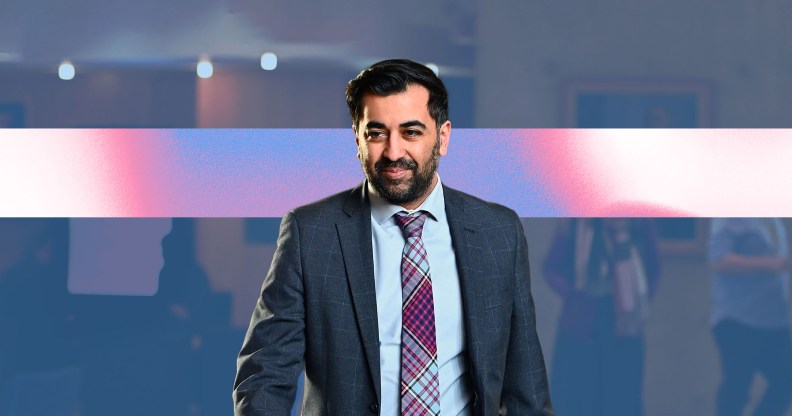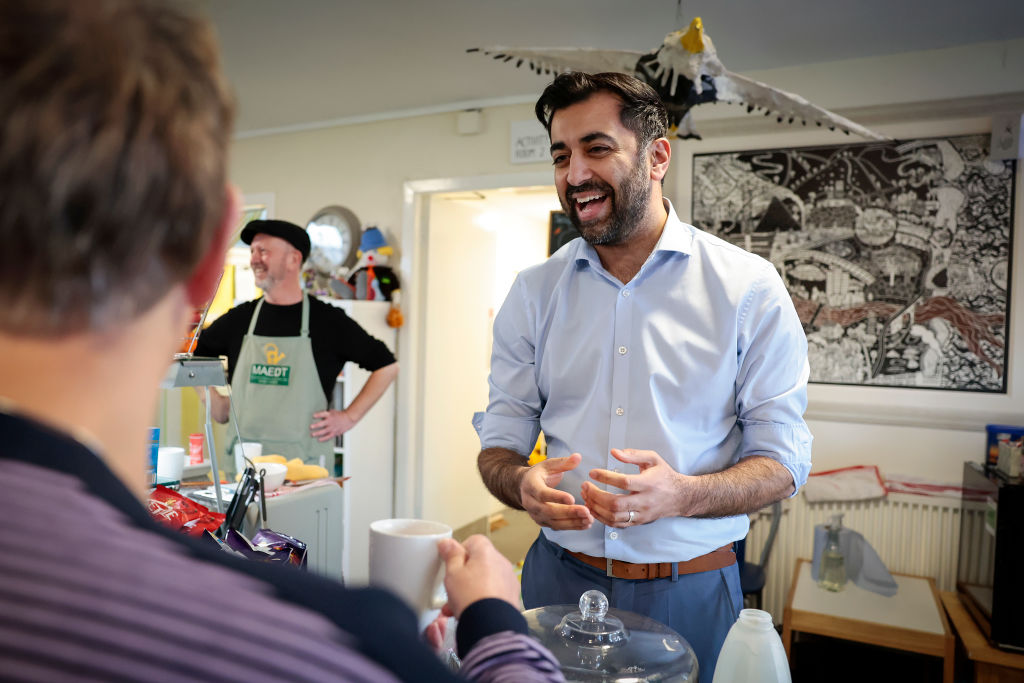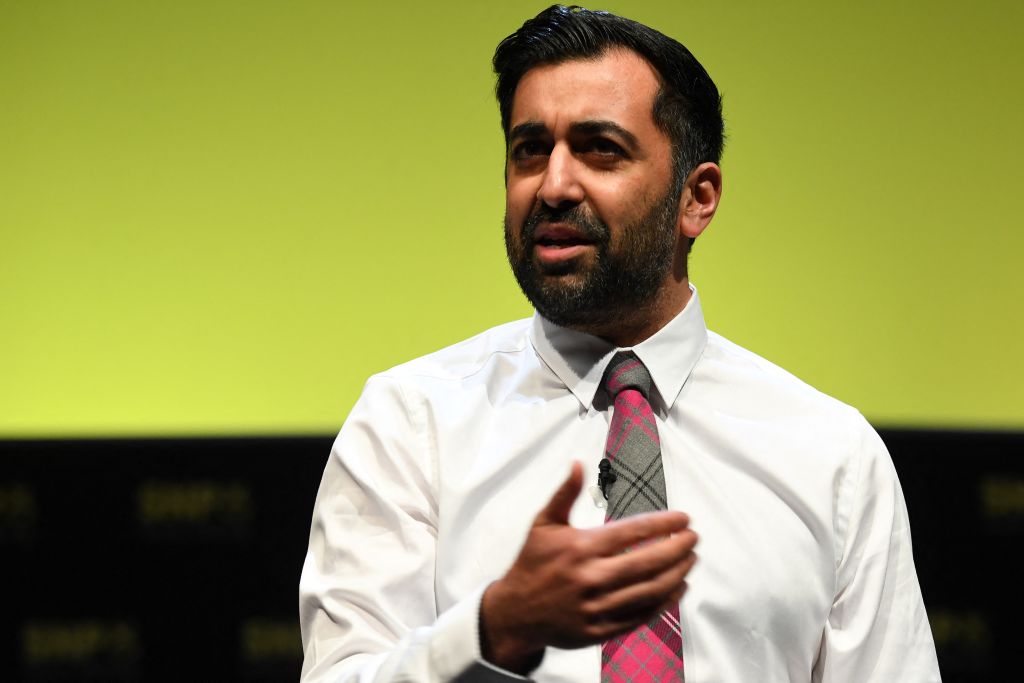Humza Yousaf on SNP transphobia, healthcare and embedding LGBTQ+ rights in a Scottish constitution

Humza Yousaf became SNP leader and Scottish first minister in March 2023. (Getty)
SNP leadership hopeful Humza Yousaf has told PinkNews he would put LGBTQ+ rights at heart of an independent Scotland’s constitution.
The Scottish health secretary, running to succeed Nicola Sturgeon as leader and first minister, vowed to fight for LGBTQ+ rights both in the “confines of devolution” and, if he gets his way, as leader of an independent nation.
“If I’m elected… you can be absolutely sure that you’ll have a leader who will not just protect your rights, will not just defend your rights, but will absolutely advance them in a progressively, socially just Scotland,” he told PinkNews.
“I would hope that will be as an independent nation sooner rather than later. But even within the confines of devolution, I will protect those rights as best I possibly can.”
Yousaf, the MSP for Glasgow Pollok, also said that he would embed equal rights in a written Scottish constitution.
“That would help to cement them, so that when we do have the inevitable attacks on our rights, we have a concrete foundation by which to defend them,” he said.
“Far too often, we are held back by a UK government who wants to roll back on some of these rights. That’s not the kind of independent, socially just, progressive Scotland that I see.”

Among his key priorities as first minister would be to ensure conversion therapy is banned, bringing forward legislation to the Scottish parliament if the Conservative government in London continues to drag its feet.
He also promised to fight the Tories on Scotland’s Gender Recognition Reform bill, reiterating his commitment to challenge the UK government’s use of a Section 35 order to block the proposed legislation.
Humza Yousaf won’t stand for transphobia
While Yousaf advocates for reform and for trans rights more generally, his party, like others, is far from united on the issue.
One activist and former member recently told PinkNews there was “institutional inertia” within the SNP when it came to dealing with transphobic abuse.
A number of prominent SNP politicians have opposed gender recognition reform. But Yousaf believes the “vast majority of people [do so] without being transphobic”. He would not stand for debate tipping into bigotry, he reiterated.
“There is a job for the next SNP leader to do, which is to try to bring the party together over what has been a very divisive debate,” he said, noting that he has “been a victim of Islamophobia and racism for pretty much most of my life”.
He pledged: “I’m not going to stand for transphobia or any hatred of any sort.”
Asked if he would be prepared to expel transphobic MSPs from the party, Yousaf said: “There’s a proper process for that. I think that’s right. And there’s a process whereby if anybody is being bigoted, transphobic, homophobic, misogynist, racist, that that is investigated, and appropriate action [taken], which, of course, could be expulsion.”

On gender recognition reform, he added: “All we’re trying to do is make life that little bit easier for a tiny marginal percentage of the population who are often targeted with hate crime. It’s a real shame that it has become an unbelievably toxic debate and some of the dog whistles I’ve heard against our trans community, if you took out the word ‘trans’ and put in ‘Muslim’, or ‘Jew’ or ‘Black person’, we would not stand for it.
“So, I want anybody and everybody in our society here in Scotland to know that, if I’m the first minister, you can look me in the eye and see somebody who will stand up for your rights, and not just stand up for them, not just defend them, but, where I can, advance them.”
One of the most pressing issues facing the trans community is the crisis in healthcare. At Scotland’s Sandyford gender service, the waiting time for a first appointment is currently about five years for adults and four for young people.
Yousaf is determined to change this. “[That’s] far too long,” he said. “We need to reduce those waiting lists end of, full stop.”
He doesn’t believe this would require huge amounts of money, considering the relatively “small number of people” who require gender-identity services.
“It’s about using that money properly with that focus and, where necessary, we need to make sure we’re recruiting where some of those workforce gaps are.
“I’m still very much the health secretary, I spend most of my day-to-day working on health issues,” he said. “This is one I’m fully committed to ensuring that we get this right for everybody who requires those services.”
Yousaf doesn’t think Scotland should necessarily look to England, where the only young people’s gender clinic is being closed and replaced with regional pilot centres and a more integrated approach to care for trans and gender-questioning youth – reports have suggested the project is already falling short.
He is “very, very keen to see if there are lessons that we should be learning”, but thinks Scotland ultimately has a “very different” health service that requires its own approach.

